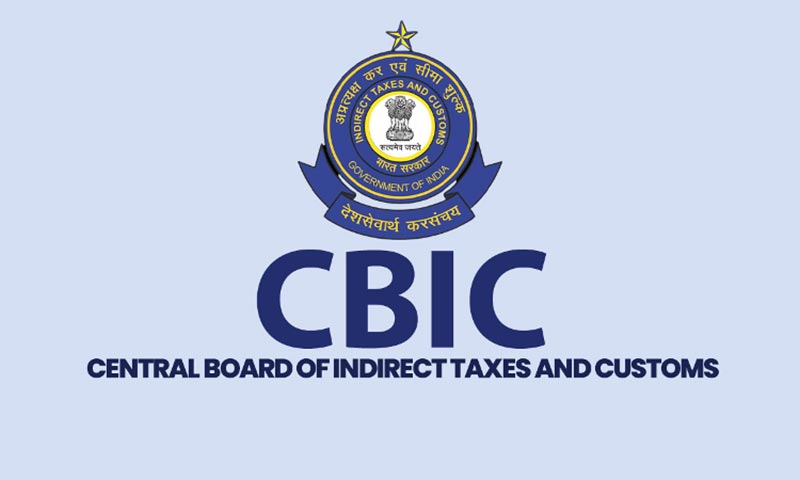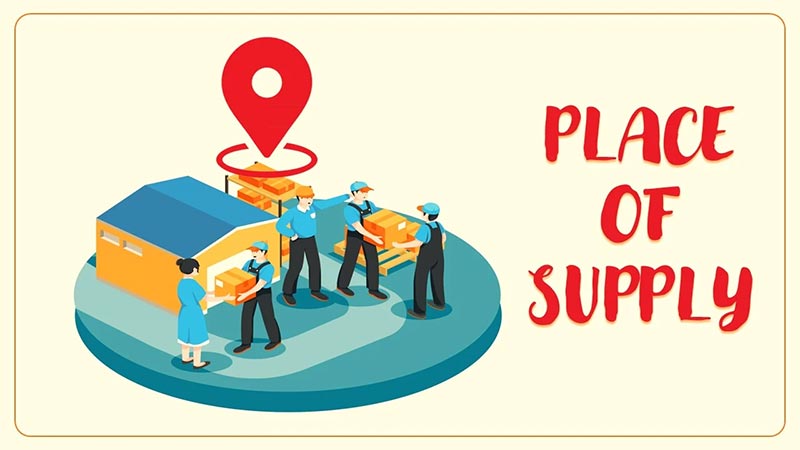
In the complex landscape of Goods and Services Tax in India and GST Compliance understanding the nuances of place of supply is crucial. Recently, the Central Board of Indirect Taxes and Customs received numerous representations from businesses and field formations seeking clarity on specific issues concerning the determination of place of supply. These issues revolve around three key areas: transportation of goods, advertising services, and co-location services. In response, the CBIC, under the powers conferred by the Central Goods and Services Tax Act, 2017 (CGST Act), has issued a clarifying circular.
Place of Supply for Transportation of Goods, Including Mail and Courier Services
The Issue:
The issue arises from sub-section (9) of section 13 of the IGST Act, which the Finance Act, 2023, recently omitted. This omission has sparked questions regarding the place of supply for services of transporting goods when the location of either the supplier or the recipient is outside India.
The Clarification:
The CBIC clarifies that the place of supply for transportation of goods, other than through mail or courier, when either the supplier or recipient is located outside India, will be determined by the default rule under section 13(2) of the IGST Act. If the location of the recipient is known, the place of supply is that location. If the location of the recipient isn’t available in the ordinary course of business, the place of supply becomes the location of the supplier. Furthermore, the place of supply for transportation services via mail or courier follows the same principle. This reinforces the idea that the location of the recipient holds the key to these determinations.

Place of Supply for Advertising Services
The Issue:
The advertising sector often involves complex arrangements where advertising companies procure space on hoardings and billboards. There are cases where these arrangements involve the supply or sale of space or rights to use space on hoarding structures. This raises questions about the place of supply for services provided by vendors to advertising companies in such scenarios.
The Clarification:
Place of Supply in Case (i): When there’s a supply or sale of space on an immovable property (hoarding/structure), the place of supply is determined by section 12(3)(a) of the IGST Act. In this case, the place of supply is the location where the hoarding/structure is located. This is in line with the treatment of such services directly related to immovable property.
Place of Supply in Case (ii): In scenarios where the vendor provides advertising services and is responsible for the display of advertisements, the place of supply is not covered by section 12(3)(a) of the IGST Act. The services provided are not the sale of advertising space or the grant of rights to use immovable property. Instead, they fall under the category of advertisement services. In such cases, the place of supply follows section 12(2) of the IGST Act, where the location of the recipient of the service determines the place of supply.

Place of Supply for Co-location Services
The Issue:
Co-location services involve renting space for servers and computing hardware, bundled with various related services. Questions arise about whether co-location services should be treated as renting immovable property or as hosting and IT infrastructure provisioning services.
The Clarification:
Co-location services are considered to be “Hosting and IT infrastructure provisioning services” and not renting of immovable property. These services encompass not only providing physical space but also a range of services such as network connectivity, backup facilities, security, monitoring, and more, all of which are crucial for the recipient’s interaction with the system. As a result, the place of supply for co-location services is determined by the default provision in section 12(2) of the IGST Act, which looks to the location of the recipient of these services.
The Exception:
If the agreement between the supplier and the recipient is limited to providing physical space without additional services related to hosting and IT infrastructure provisioning, the supply is considered as the rental of immovable property. In this case, the place of supply is determined by the location of the immovable property as per section 12(3)(a) of the IGST Act.
Understanding the place of supply is essential for businesses to comply with GST regulations. The CBIC’s recent clarification provides much-needed clarity on these specific scenarios, allowing businesses to navigate the complex world of GST with confidence. As always, it’s important for businesses to stay updated with the latest circulars and notifications to ensure compliance and smooth operations in the ever-evolving GST landscape.
